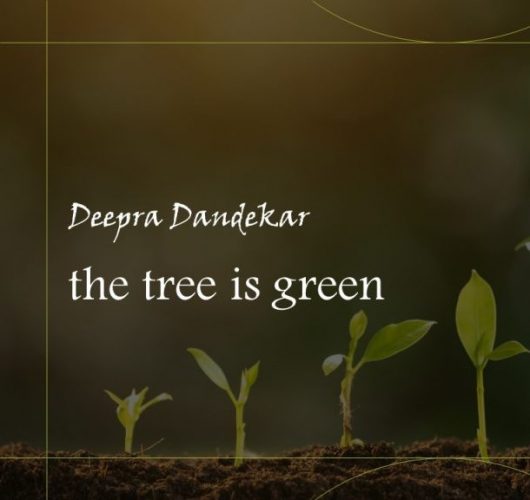This last month has been introspective. I have repeatedly (perhaps coincidentally) been drawn into discussions about how adults still find it difficult to question their elders about childhood trauma. People recount that when it comes to talking about childhood trauma, they feel like they are reduced to being children again—stammering, crying, and defensive aggression. While one imagines adult conversations to be civil and factual, this is oftentimes derailed when confronted with rage, denial, bullying, or even counter accusations that compare children with adults—classic abuse, since children and adults are not equals in any universe. People carry around a child’s silenced voice buried inside themselves for years—a corpse unjustly murdered who refuses to die. While childhood abuse may not be intentional, it statistically measures up to half the world’s annual history of what is called collateral damage.
I got drawn into the subject through a prolonged Facebook discussion with an old acquaintance/ friend from Udaipur. I have known him for a while, and I know that he is a compassionate person with a tremendous sense of responsibility towards his environment and a strong sense of justice. From a Partition refugee background, he is committed to especially helping young people who are stuck in conflict situations through his counselling programs. I was surprised when he recently wrote a couple of very detailed Facebook posts about his own childhood trauma. What I read stunned me.
He described the trauma of being left alone with his mother at home, abandoned for many years by his father since the age of 15. He was the only one to look after his ailing and dying mother, as his father moved to another city with a new love-interest. My Facebook friend wrote movingly about how the experience scarred him for life. He was a young boy, untutored and unprepared to physically care for an old woman who was completely helpless, especially since the woman in this case—his mother, was also facing mental issues due to her husband’s desertion and her own ill-health.
My friend recounted how his father’s abandonment fundamentally damaged him, forcing him into adulthood much before he was psychologically prepared for it. It constituted classic abuse—treating a child as an adult. Moreover, his family imposed a regime of silence on him, preventing him from questioning and challenging his elders. This enforced silence—being forbidden from questioning his elders to keep the ‘peace’ of the family, ultimately led my friend to leave home. The silent child in him that smouldered with rage only resulted in a fractured adulthood, and it was only now at the age of 60, when he was finally beginning to ask questions—breaking the silence of claustrophobic peace by exploding into the public domain with Facebook posts.
It is understood that forcing children into silence to ‘keep the peace’ and accusing them of disturbance the peace when they voice suffering, constitutes self-justificatory, adult abandonment. Enforced silence teaches children not to be themselves, for they must always please others. These ‘others’ that begin with elders at home, only multiply in number, changing faces, as social life proliferates. The child who learns to silently deal with stigma and harassment to please others and perform ‘happiness’ (smiling depression) only grows into an empty, angry, violent, and depressed adult who enforces silences on those less powerful than themselves—perpetuating a grand circle.
My Facebook friend asked a crucial question in one of his parenting videos: if one cannot cry, rage, and express oneself as a child, or express the grief of a child that is still inside, then how can one ever be happy as an adult? One is taught as a junior not to cry or shout, not to express opinions, not dress or laugh conspicuously to attract unwanted attention, not to exercise choice and/or will, and above all, not to question elders.
Women are taught to fear abuse and abusers. They learn to avert abuse by pleasing and placating the abuser, while continuing to silently bear the pain and stigma. This silencing has a catastrophic effect on mental health, resulting in anxiety, depression, and suicidal ideation. So many women with undead, violated and silenced childhoods still buried in their hearts, walk around with smiling depression to please others. In the meanwhile, they completely forget how to love, feel pleasure, feel entitled to happiness and love, laugh, and fiercely be their own persons.
According to the demands placed by my friend on his elders: no politely asked question is undeserving of respectful engagement between two civil, consenting adults, who have volunteered to meet at a talking table. Hierarchies that foment silences constitute fundamental obstacles to respectful and equal relationships that are waiting to benefit from a positive transformation. The de-stigmatizing process at its core must demolish false hierarchies between adults, and seek to restore the respectful dignity of children, whose childhoods have been violated inside the intimate space of home.
As my friend also warned, the process must under no condition demonize elders—re-injecting old traumas into fresh conversations—for adults even if they were not children at the time of inflicting trauma on children, were nevertheless human. The aim is not to pick fights and become angry children. The trick is to remain adults, while talking about traumatic childhoods. It is essential to challenge injustice, to make for democratic families, societies, organizations, and even nations. There is a strong need to talk and be heard, even as adults. Healing can only take place when adults courageously talk to each other ‘about’ the past by remaining in the present, and by demolishing false hierarchies that are foundational to injustice.
*









Add comment